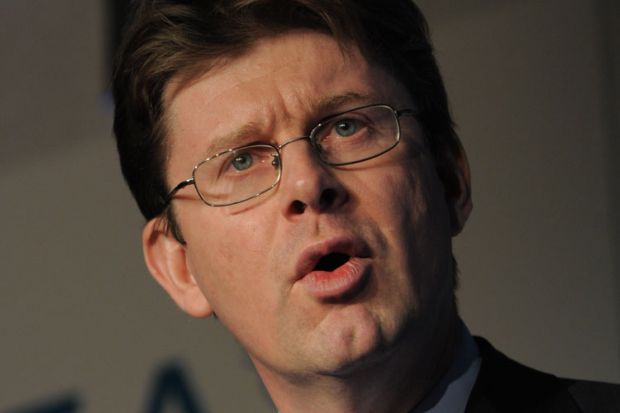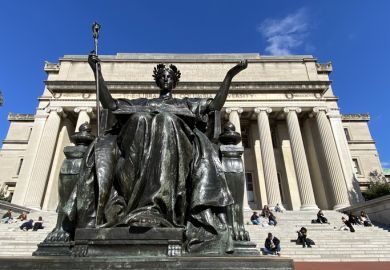Source: CBI
Speaking at the Universities UK annual conference yesterday evening, the new universities and science minister also said there were likely to be around 15,000 extra students entering higher education this year – below the 30,000 new places provided by the government ahead of it lifting the student numbers cap next year. He also said he did not support the idea of raising the £9,000 fee cap in line with inflation.
The minister’s speech to the conference gave no sign of any fresh policy developments between now and the election.
Mr Clark, who has also kept his brief as minister for cities in the Cabinet Office, declined to support UUK’s longstanding call to withdraw university students from the net migrant count when questioned at a press briefing afterwards.
His predecessor as universities minister, David Willetts, is reported to have privately supported UUK’s cause.
UUK sees the move as a way to spare universities negative effects from the government’s commitment to reduce net migration to the “tens of thousands” by 2015.
Mr Clark said: “For higher education institutions, the numbers [of international students] have been growing; they are not capped.”
He added: “The net migration cap, the figures, they conform to the standard OECD definition of immigration statistics. That’s the standard, recognised definition. So you can’t opt in and opt out of it. Universities would have cause to be concerned if they were being restricted in the number of students that they take from overseas.
“One of the things I want to do - and I want to do [for] the Chinese…the Indian government - is to get the message across that there is no cap and there won’t be. That seems to me the most important guarantee.”
Mr Clark also refused to support UUK’s calls to increase the £9,000 fee cap in line with inflation. “I think the £9,000 broadly covers, adequately covers, the cost of education for most courses and most institutions and there are arrangements for higher-cost courses to be covered,” said the minister.
Asked whether he was concerned about the rapid increase in public funding at private colleges, Mr Clark said: “There were measures taken on private colleges to manage the student numbers and they seem to be working.”
Mr Clark also dismissed concerns over the government’s rising estimates on the portion of student loans that will never be repaid by graduates, known as the Resource Accounting and Budgeting charge. “You’re making forecasts over a 30-year period. Earnings forecasts will vary from time to time. I don’t think every time you get a different forecast you throw up your hands and change the system: this is how it is,” he said.
In his speech to the conference, Mr Clark referred to the fact the government had “allowed for” an extra 30,000 student places in 2015-16. “We expected that this would translate in practice to something like 15,000 extra students this year,” he said. “Early estimates are that the outturn will be plumb in line with expectations, representing a boost to many thousands of young people and an orderly transition to uncapped numbers.”
The minister also issued a challenge to the sector on diversity, noting that “only 17 per cent of VCs and 22 per cent of professors are women”.
He added: “I will do everything I can to support you in driving forward measures that will open up universities to those whose representation does not reflect still their full talent and potential.”
Register to continue
Why register?
- Registration is free and only takes a moment
- Once registered, you can read 3 articles a month
- Sign up for our newsletter
Subscribe
Or subscribe for unlimited access to:
- Unlimited access to news, views, insights & reviews
- Digital editions
- Digital access to THE’s university and college rankings analysis
Already registered or a current subscriber? Login




